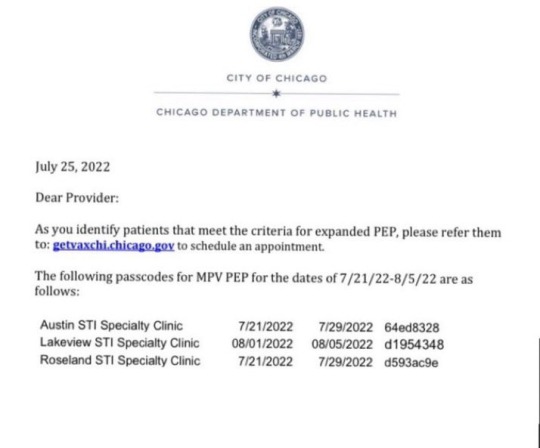#cook county
Text


#new york attorney general#judgments#westchester county#donald trump#golf course#private estate#seven springs#state lawyers#judge arthur engoron#trump organization#billionaire#legal bills#third run for the white house#creditor#property recovery#liens#foreclosure#trump tower#40 wall street#central park#mar-a-lago#trump national doral golf club#cook county#illinois#truth social#appeals court#bonding companies#lmao#humor#funniness
334 notes
·
View notes
Text
Toledo City Council just approved a plan to turn $1.6 million in public dollars into as much as $240 million in economic stimulus, targeted at some of the Ohio metro’s most vulnerable residents.
“It’s really going to help people put food on the table, help them pay their rent, help them pay their utilities,” says Toledo City Council Member Michele Grim, who led the way for the measure. “Hopefully we can prevent some evictions.”
The strategy couldn’t be simpler: It works by canceling millions in medical debt.
Working with the New York City-based nonprofit RIP Medical Debt, the City of Toledo and the surrounding Lucas County are chipping in $800,000 each out of their federal COVID-19 recovery funds from the American Rescue Plan Act.
The combined $1.6 million in funding is enough for RIP Medical Debt to acquire and cancel up to $240 million in medical debt owed by Lucas County households that earn up to 400% of the federal poverty line.
“It could be more than a one-to-100 return on investment of government dollars,” Grim says. “I really can’t think of a more simple program for economic recovery or a better way of using American Rescue Plan dollars, because it’s supposed to rescue Americans.”
How It Works
Under the RIP Medical Debt model, there is no application process to cancel medical debt. The nonprofit negotiates directly with local hospitals or hospital systems one-by-one, purchasing portfolios of debt owed by eligible households and canceling the entire portfolio en masse.
“One day someone will get a letter saying your debt’s been canceled,” Grim says. It’s a simple strategy for economic welfare and recovery.
RIP Medical Debt was founded in 2014 by a pair of former debt collection agents, and since inception it has acquired and canceled more than $7.3 billion in medical debt owed by 4.2 million households — an average of $1,737 per household...
Local Governments Get Involved
The partnership with Toledo and Lucas County is the third instance of the public sector funding RIP Medical Debt to cancel debt portfolios.
Earlier this year, in the largest such example yet, the Cook County Board of Commissioners approved a plan to provide $12 million in ARPA funds for RIP Medical Debt to purchase and cancel an estimated $1 billion in medical debt held by hospitals across Cook County, which includes Chicago.
“Governments contract with nonprofits all the time for various social interventions,” Sesso says.
“This isn’t really that far-fetched or different from that. I would say between five and 10 other local governments have reached out just since the Toledo story came out.”
What's the Deal with Medical Debt?
An estimated one in five households across the U.S. have some amount of medical debt, and they are disproportionately Black and Latino, according to the U.S. Census Bureau...
Acquiring medical debt is relatively cheap: hospitals that sell medical debt portfolios do so for just pennies on the dollar, usually to investors on the secondary market.
The purchase price is so low because hospitals and debt buyers alike know that medical debt is the hardest form to collect...
The amount of debt canceled for any given household has ranged from $25 all the way up to six-figure amounts. Under IRS regulations, debts canceled under RIP Medical Debt’s model do not count as taxable income for households...
Massive Expansion Coming Up
After not one but two donations from philanthropist MacKenzie Scott, totaling $80 million, RIP Medical Debt is planning for expansion.
It’s using a portion of those dollars to create an internal revolving line of credit to expand to places where it can find willing sellers before it has found willing funders.
The internal line of credit means the nonprofit now has new, albeit still limited, flexibility to acquire debt portfolios from hospitals first, then begin raising private or public dollars locally to replenish the line of credit later and make those funds available for other locations.
“People often ask, do you only work with nonprofit hospitals, or do you work with for-profit hospitals? And I’m like, I just want to get the debt, regardless of who created the debt. If it’s out there, I want it,” Sesso says.
Fundamentally, they are not solving the issue of medical debt, but easing its pressure from as many lives as possible — while also upping the pressure on lawmakers and the healthcare industry.
“We’re intentionally taking the stories of the individuals whose debt we have resolved, and putting their stories out into the world with intention in a way that tries to push and create more of that pressure to fundamentally solve the problem,” she says.
-via GoodGoodGood, 4/6/23
#toledo#ohio#chicago#cook county#new york#medical debt#healthcare#healthcare access#united states#us politics#debt crisis#debt relief#hospital#nonprofit#good news#hope
300 notes
·
View notes
Text

An Israeli-American attorney is suing her supervisors at the Chicago Public Defender’s Office after being asked to remove a photo of herself holding an IDF-issued rifle against the backdrop of an Israeli flag claiming it is “akin to displaying a Nazi swastika”.
Attorney Debra Gassman, assistant public defender of Cook County, said that the photo had been taken during her volunteer service in the IDF during the first Gulf War.
Define N@zism for them! AM YISRAEL CHAI ✡️✡️✡️
naz_hashem
49 notes
·
View notes
Text
McDonough County Sheriff Refuses to Enforce New Illinois Law Banning Assault Weapons
McDonough County Sheriff’s OfficeSheriff Nick Petitgout110 S. McArthur St.Macomb, IL 61455
Media Statement
January 11, 2023
~House Bill 5471~
As your Sheriff, I wanted to give citizens of McDonough County an update on the recent passage of HB 5471, also known as the Protect Illinois Communities Act.
As your duly elected Sheriff my job and my office are sworn, in fact, to protect the citizens…

View On WordPress
#advocacy#assault weapons#Chicago#cook county#gun control#Illinois#McDonough#politics#Pritzker#Roy F. McCampbell#sheriff
54 notes
·
View notes
Text

Justice,IL is where I grew up. My family always made it seem like it was far away from Chicago. As a kid I was Chicago, Homewood, Joliet (I hated Joliet) & of course Justice & surrounding towns Hickory Hills, Bridgeview of where I grew up.
2 notes
·
View notes
Text
Just days after Illinois became the ninth U.S. state to ban assault rifles, the state already hit a roadblock to implementing the law: defiant sheriff's offices.
At least 74 Illinois sheriff's departments have publicly vowed to defy elements of a recent gun-control law signed by Gov. J.B. Pritzker, which banned assault weapons, high-capacity magazines and switches. The offices have vowed to not check if weapons are registered with the state or house individuals arrested only for not complying with the law.
As the number of uncooperative sheriff's offices increased, Pritzker has made his own vow – to ensure those members of law enforcement who fail to "do their job… won't be in their job."
The Illinois Sheriffs' Association issued a statement Wednesday expressing continued opposition to the law. Simultaneously, dozens of sheriff's offices began to post nearly identical messages promising they would not check for compliance with the law or arrest offenders of the law.
Jim Kaitschuk, executive director of the Illinois Sheriffs' Association, said he drafted the statement which sheriff's offices began to sign or modify.
"Therefore, as the custodian of the jail and chief law enforcement official for DuPage County, that neither myself nor my office will be checking to ensure that lawful gun owners register their weapons with the State, nor will we be arresting or housing law abiding individuals that have been charged solely with non-compliance of this Act," DuPage County Sheriff James Mendrick wrote in a statement, which was mirrored by dozens of other offices.
With a population of over 920,000 residents, DuPage County is the largest county to defy the law.
ABC News was able to identify at least 59 sheriff's offices that issued a nearly identical statement, the main identifiable difference between the statements being the letterhead and name of the county in the text of the statement.
In total, at least 74 offices said they plan to not use resources to enforce elements of the law, impacting nearly 4,000,000 Illinois residents, or over 30 percent of the state's residents.
Other than DuPage county, the most populous counties in Illinois – Cook, Lake, and Will Counties – have not issued any statement opposing the law. The deadly 2022 Highland Park parade shooting took place in Lake County, which is enforcing the law. Most of the sheriff's offices opposing the law reside in counties with less than 100,000 residents, though nine defiant counties have populations exceeding 100,000.
Kaitschuk said he disagreed with the idea that sheriffs have an obligation to check compliance with the law or house offenders in their jails.
"That is not a charge that is provided to us, or mandated to us in the bill that passed and was signed by the Governor," he said.
Many of the sheriffs defying the law have described their opposition to the law as akin to civil disobedience to protect the Second Amendment.
"We will not be enforcing it in this county; I will also not house anyone in my jail that has violated this act because we know it to be an unlawful act by the general assembly and the Governor," Jefferson County Sheriff Jeff Bullard Sr. said in an online video.
Sangamon County Sheriff Jack Campbell, whose jurisdiction covers nearly 200,000 residents, signed a modified version of the statement. In an interview with ABC News, Campbell based his opposition to the law due to both adherence to the Constitution and the ineffectiveness of the law.
"The law will have zero impact on the murder rate in the state of Illinois," Campbell said.
Some offices took less defiant stances which include waiting for movement from the courts or legislative action.
"I understand that our nation had witnesses frequent tragedies involving gun violence and I am in no way attempting to minimize the impact these events have had," St. Clair County Sheriff Richard Watson wrote in a statement, in which he said he opposed the law but did not promise to defy it.
When asked why he decided to not enforce the law rather than wait for action from the courts, Campbell returned his belief that the law is unconstitutional and will eventually be struck down.
"Because between now or Tuesday when the bill was signed into law by the Governor, how many people can have their constitutional rights violated?" he asked. “And I don’t believe any U.S. citizens should ever have their country’s rights violated at anytime."
Pritzker addressed the defiance, commenting that members of law enforcement who fail to enforce it might lose their job.
"The fact is that yes there are of course people who are trying to politically grandstand, who want to make a name for themselves by claiming that they will not comply," he said. "But the reality is that the state police is responsible for enforcement, as are all law enforcement all across our state and they will in fact do their job or they won't be in their job."
Kaitschuk rebutted the idea that Pritzker has the authority to fire members of law enforcement, especially elected sheriffs.
"I'm just not aware of any provision that provides the Governor that opportunity to do so," he said.
Eric Ruben, a law professor at Southern Methodist University and fellow at the Brennan Center for Justice, told ABC News that the public statements made by the sheriffs could significantly impact residents' behavior.
"Even if it's posturing and political, it does send a signal to residents in these communities that they don't have to worry about the law," he said.
Ruben added when sheriffs made public statements about the enforcement and constitutionality of a similar 2013 New York state law requiring the registrations of assault rifles, New York received far fewer registrations than expected, suggesting noncompliance with the law.
"Ultimately, it's not the sheriff's job to decide on the constitutionality of laws," he said. "That's generally something that the courts do."
On Thursday, Pritzker reaffirmed his stance that the sheriff's offices should not be making decisions about which laws to enforce and which to ignore.
"You know, you can have all the resolutions and declarations that you want," Pritzker said. "The reality is that the laws that are on the books, you don't get to choose which ones people are going to follow."
Ruben added that the sheriffs' public statements about checking that residents register their guns could be a "red herring" or distraction since the law does not call on law enforcement to check that citizens register their firearms unprompted.
Pritzker made a similar point on Friday, noting that registering the guns is ” not something that requires the intervention of a sheriff.”
Kaitschuk said the Illinois Sheriffs' Association does not intend to challenge the law in court; however, on Tuesday, the Illinois State Rifle Association declared its intention to go to court.
"Challenge accepted. The Illinois State Rifle Association will see the State of Illinois in court," Richard Pearson, the association's executive director, said.
During a bill signing on Friday, Pritzker remarked he was confident the state law was constitutional.
#us politics#news#abc news#2023#illinois#illinois state police#gov. j.b. pritzker#gun rights#gun control#gun violence#assault weapons ban#assault weapons#high-capacity magazine bans#handgun switch bans#Illinois Sheriffs' Association#Jim Kaitschuk#dupage county#lake county#cook county#will county#mass shootings#highland park shooting#constitutional rights#us constitution#Eric Ruben#Illinois State Rifle Association#police the police#acab
17 notes
·
View notes
Video
Beacuse We Never Turn Out the Way We Thought We Would by Thomas Hawk
#America#Chi-Town#Chicago#Cook County#Illinois#Michael Hayden#O'Hare International Airport#Sky's the Limit#USA#United States#United States of America#airport#neon#fav10#fav25#fav50#fav100#flickr
3 notes
·
View notes
Text

"MARCH DIMES QUEEN MEETS PRINCESS-TO-BE"
Chicago, Ill., January 8, 1956: Margaret Mary Sombera, of Skokie, Ill., presents Grace Kelly, princess to be, with a pink nosecay in welcome to her arrival in Chicago on Sunday morning. Miss Kelly is returning to the coast to complete one picture, and Prince Rainier III is to go fishing in Florida. Margaret the Cook County March of Dimes Queen had a crown made of dollars sills and dimes and wore a scarlet cape, her robe of royalty.
Photo by Frank Berger.
#grace kelly#princess grace#margaret mary sombera#january 8#march of dimes#cook county#illinois#chicago#1956
5 notes
·
View notes
Text

reblog if this is this ur fav position <3
@sweetricanbabe
#sweetricanbabe#chicago#chiraq#chitown#illinois#midwest#logan square#evanston#skokie#wicker park#jefferson park#humboldt park#golden mile#cicero#des plaines#burbank#cook county#puerto rican
7 notes
·
View notes
Photo

22 notes
·
View notes
Text
oprah sinfree - headroom
#sensitive artist types#oprah sinfree#chicago#esoteric#esoteric dance#industrial#underground music#techno#soundcloud#diy#goth chicago#goth house#chicagoland#cook county#location genre#SoundCloud#max headroom#max headroom incident#victory auto wreckers#illinois
4 notes
·
View notes
Text
Body 10 (left) and Body 13 (right) were two of 33 known victims of John Wayne Gacy, and two of five four who still remain unidentified.


Body 10:
Estimated Date of Death: 1972 to 1978 (Probably March 15, 1977 - July 5, 1977 based upon arbitrary pattern and timing)
Estimated Age: 17-21 years old
Race: White
Height: 5'7" to 5'11"
Distinguishing Marks/Features: Healed fracture to the left clavicle.
Body 13:
Estimated Date of Death: 1972 to 1978 (most likely August 6, 1976 to October 5, 1976 based upon trial witness' testimony of digging trenches/graves)
Estimated Age: 17-22 years old
Race: White
Sex: Male
Height: 5'9" to 6'2"
Dentals: One upper tooth displaced behind another. Most likely suffered from a bad toothache at the time of his disappearance.
#john wayne gacy#serial killer victim#john doe#true crime#unsolved mysteries#illinois crime#illinois#cook county#victim profile#murder victim#1978#70s crime#body 10#body 13
8 notes
·
View notes
Photo

Cook County, Minnesota
7 notes
·
View notes
Text

if you’re struggling to find a monkeypox vaccine in chicago, u can use one of these codes to get an appointment at a pop-up clinic put on by the dept of public health!! i just got one for next tuesday
11 notes
·
View notes
Text
Safe-T Acts Six Major Flaws Threatening Illinoisans’ Safety
Threatening Illinoisans’ safety: Six major flaws in the SAFE-T Act’s end to cash bail – Wirepoints wirepoints.org/threatening-il… via @Wirepoints
Proponents of Illinois’ SAFE-T Act claim that the law’s provisions to end the cash bail will make Illinoisans more safe once the provisions are implemented on January 1, 2023. They claim the new law will give judges more discretion to detain dangerous…

View On WordPress
7 notes
·
View notes
